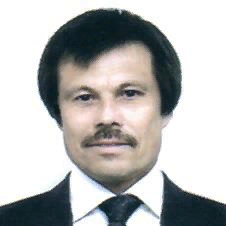International Journal of Image, Graphics and Signal Processing (IJIGSP)
IJIGSP Vol. 8, No. 7, 8 Jul. 2016
Cover page and Table of Contents: PDF (size: 582KB)
Evaluating Image Recognition Efficiency using a Self-Organizing Map
Full Text (PDF, 582KB), PP.1-8
Views: 0 Downloads: 0
Author(s)
Index Terms
Image recognition, Unsupervised learning, Self-Organizing Maps, Hierarchical clustering
Abstract
Recognition and classification of images is an extremely topical interdisciplinary area that covers image processing, computer graphics, artificial intelligence, computer vision, and pattern recognition, resulting in many applications based on contemporary mobile devices. Developing reliable recognition schemes is a difficult task to accomplish. It depends on many factors, such as illumination, acquisition quality and the database images, in particular, their diversity. In this paper we study how the data diversity affects decision making in image recognition, presenting a database driven classification-error predictor. The predictor is based on a hybrid approach that combines a self-organizing map together with a probabilistic logical assertion method. By means of a clustering approach, the model provides fast and efficient assessment of the image database heterogeneity and, as expected, indicates that such heterogeneity is of paramount importance for robust recognition. The practicality of the model is demonstrated using a set of image samples collected from a standard traffic sign database publicly available by the UK Department for Transport.
Cite This Paper
Rui M. Ligeiro, Andrei B. Utkin,"Evaluating Image Recognition Efficiency using a Self-Organizing Map", International Journal of Image, Graphics and Signal Processing(IJIGSP), Vol.8, No.7, pp.1-8, 2016. DOI: 10.5815/ijigsp.2016.07.01
Reference
[1]C. Beyan, "A multimodal approach for individual tracking of people and their belongings," Imaging Science Journal, vol. 63, no. 4, pp. 192-202, July 2015.
[2]A. Javed, "Face recognition based on principal component analysis," International Journal of Image, Graphics and Signal Processing, vol. 5, no. 2, pp. 38–44, February 2013.
[3]O. Nali, "High-speed Image compression based on the combination of modified self organizing maps and back-propagation neural networks," International Journal of Image, Graphics and Signal Processing, vol. 6, no. 5, pp. 28–35, April 2014.
[4]J. Senthilnath, Nitin Karnwal, and D. Sai Teja, "Crop type classification based on clonal selection algorithm for high resolution satellite image," International Journal of Image, Graphics and Signal Processing, vol. 6, no. 9, pp. 11–19, August 2014.
[5]T. Kohonen, "Self-organized formation of topologically correct feature maps," Biological Cybernetics, vol. 43, no. 1, pp. 59–69, January 1982.
[6]T. Kohonen, Self-Organization and Associative Memory, 3rd. ed., Berlin: Springer (Springer Series in Information Sciences, Vol. 8), 2012.
[7]T. Kohonen, "The Self-Organizing Map," Proceedings of the IEEE, vol. 78, no. 9, pp. 1464–1480, September 1990.
[8]T. Kohonen, Self-Organizing Maps, Berlin: Springer, 1995.
[9]J. Vesanto and E. Alhoniemi, "Clustering of the self-organizing map," IEEE Transactions on Neural Networks, vol. 11, no. 3, pp. 586–600, May 2000.
[10]M. Johnsson, Applications of Self-Organizing Maps, Lund, SE: Lund University Press, 2012.
[11]M. Resta, "Assessing the efficiency of health care providers: a SOM perspective," in Advances in Self-Organizing Maps, Berlin: Springer, 2011, pp. 30–39.
[12]X. Y. Zhang, J. S. Chen, and J. K. Dong "Color clustering using self-organizing maps," Proceedings of the International IEEE Conference on Wavelet Analysis and Pattern Recognition, vol. 3, pp. 986–989, 2007.
[13]S. H. Ong, N. C. Yeo, K. H. Lee, Y. V. Venkatesh, and D. M. Cao, "Segmentation of color images using a two-stage self-organizing network", Image and Vision Computing, vol. 20, no. 4, 279–289, April 2002.
[14]J. Moreira and L. D. F. Costa, "Neural-based color image segmentation and classification using self-organizing maps," Annals of IX Brazilian Symposium on Computer Graphics, Patterns and Images (SIBGRAPI), pp. 47–54, 1996.
[15]A. Ultsch and H. P. Siemon. "Kohonen's Self Organizing Feature Maps for Exploratory Data Analysis", Proceedings of the International Neuron Network Conference, pp. 305–308, 1990.
[16]A. Ultsch, U*-matrix: A Tool to Visualize Clusters in High Dimensional Data, Berlin: Fachbereich Mathematik und Informatik, 2003.
[17]A. Sturn, J. Quackenbush, and Z. Trajanoski, "Genesis: cluster analysis of microarray data", Bioinformatics, vol. 18, no. 1, pp. 207–208, January 2002.
[18]A. Hajian, M. A. Alvarez, and J. R. Bond, "Machine learning etudes in astrophysics: selection functions for mock cluster catalogs", Journal of Cosmology and Astroparticle Physics, vol. 1, art. 038, January 2015.
[19]L. Agostini, A. Nosella, and B. Soranzo, "The impact of formal and informal appropriability regimes on SME profitability in medium high-tech industries", Technology Analysis & Strategic Management, vol. 27, no. 4, pp. 405–419, April 2015.
[20]J. Anuradha and B. K. Tripathy, "Hierarchical Clustering Algorithm based on Attribute Dependency for Attention Deficit Hyperactive Disorder," International Journal of Intelligent Systems and Applications, vol. 6, no. 6, pp. 37–45, May 2014.
[21]S. C. Johnson, "Hierarchical Clustering Schemes", Psychometrika, vol. 32, no. 2, pp. 241–254, September 1967.
[22]UK Government, Department for Transport, "Traffic-sign images for reproduction in printed matter, on screen or in other media. Images in JPG format," May 2013. [Online] Available: https://www.gov.uk/traffic-sign-images#images-in-jpg-format. [Accessed: 02-Apr-2016.]
[23]S. Suzuki, "Topological structural analysis of digitized binary images by border following", Computer Vision, Graphics, and Image Processing, vol. 30, no. 1, pp. 32–46, April 1985.
[24]C. K. Santle and V. K. Govindan. "A review on graph based segmentation," International Journal of Image, Graphics and Signal Processing, vol. 4, no. 5, pp. 1–13, June 2012.
[25]D. Bhattacharya, S.R. Pillai, and A. Antoniou, "Waveform classification and information extraction from LIDAR data by neural networks", IEEE Transactions on Geoscience and Remote Sensing, vol. 35, no. 3, pp. 699–707, May 1997.
[26]A. B. Utkin, A. V. Lavrov and R. M. Vilar "Low-cost active optical system for fire surveillance," Optics and Spectroscopy, vol. 106, no. 6, pp. 926–936, June 2009.
[27]J. Ghosh and A. Nag, "An Overview of Radial Basis Function Networks," in Radial Basis Function Networks 2: New Advances and Design, Berlin: Springer-Verlag, 2001, pp. 1–36.

